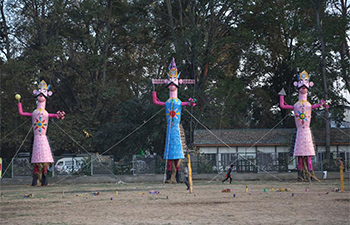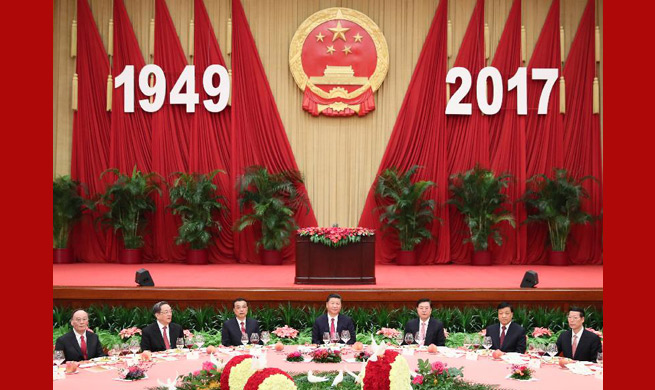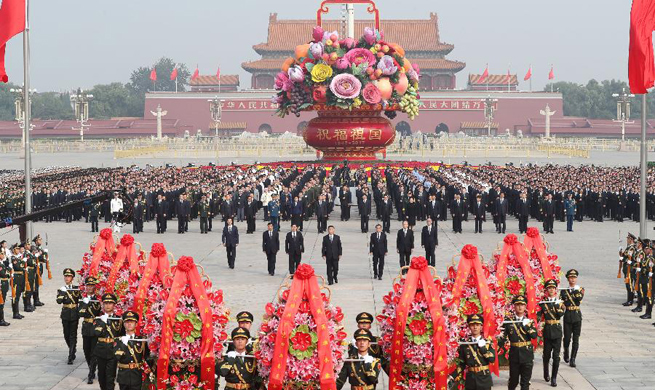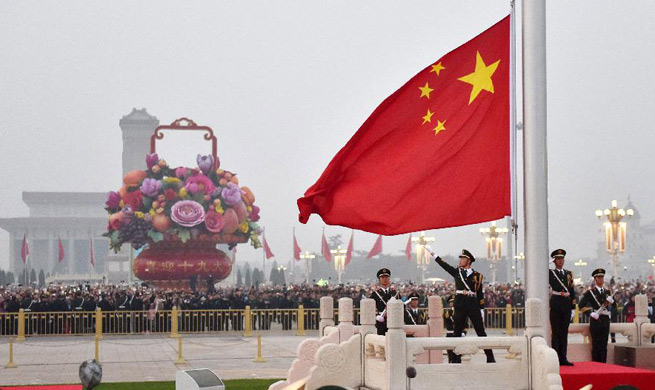BEIJING, Oct. 1 (Xinhua) -- On China's campuses and in student chat groups, the big question lately is -- is your university on the list?
The list refers to a group of 42 universities and 95 disciplines selected in an ambitious plan to make them "world class."
The Double World Class list, published last Friday, is the first government attempt in 20 years to single out top universities to receive support in an attempt to enter the first rank of higher learning institutes.
On the list are not just elite schools. Ordinary universities with strengths in particular disciplines like Guangzhou University of Chinese Medicine can also be found.
The new list has a five-year review to disqualify substandard institutions, increasing competition among selected schools.
In 1995 and 1998, the now well-known "211" and "985" projects aimed to build world-class universities and were successful to a certain extent.
According to the World University Rankings 2018 published by the Times Higher Education Supplement, two Chinese universities -- Peking University (PKU) and Tsinghua University (THU) -- are in the world's top 30. QS World University Rankings included 12 Chinese universities in the world's top 100 in June this year.
The 985/211 projects improved the overall quality of China's higher education but as the list never changes, the chosen few have been favored for years.
Zhou Hongyu, a lawmaker and educationalist with Central China Normal University, said the five-year review will help balance resource allocation.
"The project gives non-985/211 universities a chance," he said.
Wang Shuguo, president of Xi'an Jiaotong University, said universities would eventually be eliminated if they were not recognized by society and students.
The project highlights disciplines, saying world class universities are based on specific subjects and schools should develop their own strengths. Currently, most universities in China teach almost all disciplines instead of focusing on their own advantages.
Li Runfa, Renmin University student, believes universities must use resources more effectively.
"Universities will concentrate their resources on the listed disciplines instead of wasting time and money on others," he said.
Universities have taken action to reduce extraneous disciplines since 2016. A total of 175 universities including THU and PKU shut down 576 masters and doctorate programs last year. Lanzhou University closed its school of education, unable to compete with Northwest Normal University, an ordinary local university, even after more than ten years of support.
Natural sciences such as mathematics and chemistry, humanities and social sciences including politics and history as well as subjects closely related to national defense are where many universities intend to concentrate.
More than 20 provinces and municipalities have launched matching schemes and many institutions have development plans. Local investment is expected to exceed national.
Opponents of the project consider it a change in form but not content, saying it will do nothing to balanced distribution of resources.
Absolute equity in education is hard to achieve because resources are directly linked with social and economic development, according to a commentary released by China Youth Daily.
Even in the United States, the renowned universities are mainly in the northeast and southwest, it added.
"It is impossible and unnecessary to turn all universities into world class institutions," it said. "Giving support to promising universities and disciplines is the best choice for the current development phrase of our country."

















